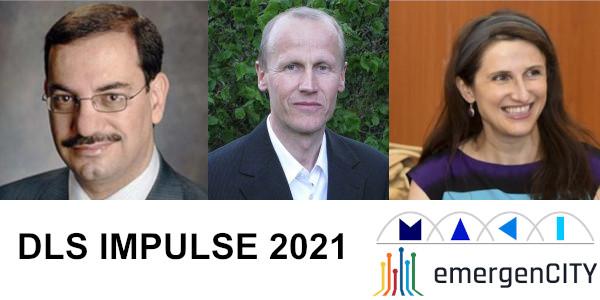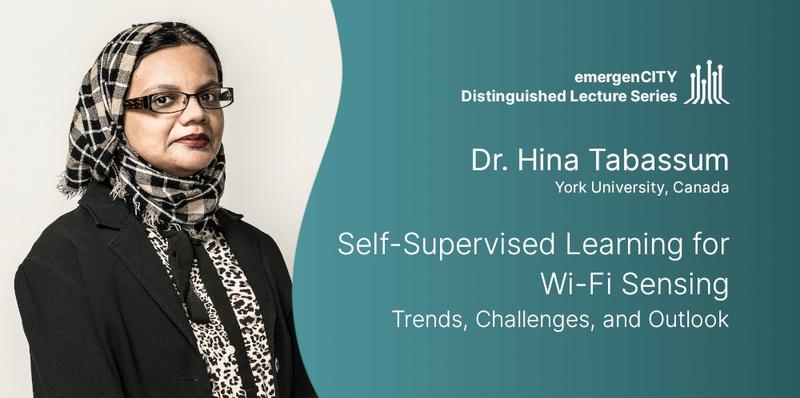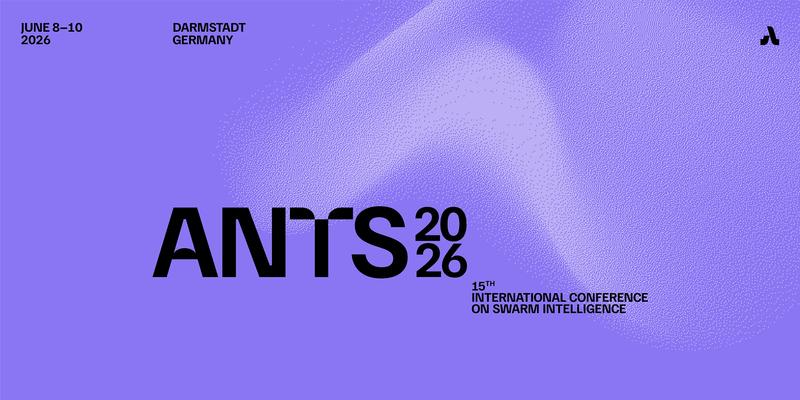As part of the emergenCITY Week 2021, emergenCITY and the Collaborative Research Centre MAKI of TU Darmstadt are organising a three-part lecture series. Renowned international guest speakers will talk about graphs and their topology, orbital-terrestrial networks and attacks on machine learning models in the context of resilience in digital urban infrastructures. The entire DLS impulse series from Tuesday, 15 June, to Thursday, 17 June is open to the public via this Zoom link.
The first talk on Tuesday will be held by Prof. Ali H. Sayed from EPFL in Lausanne, Switzerland, who is Dean of Engineering and Head of the Adaptive Systems Laboratory. In his talk Learning over Graphs, Prof. Sayed talks about learning methods from graphs, how information or misinformation is spread over graphs, and how graph topology helps to resist - or enable - manipulation. The examples given are in the context of social learning, teamwork, distributed optimisation, and adversarial behaviour.
Tuesday, 15 June 2021, 1.00-1.30 p.m.
Prof. Ali H. Sayed
Learning over Graphs
Prof. Armin Dekorsy will give his lecture on Wednesday entitled AI for orbital-terrestrial networks - key technology for global wireless connectivity. The head of the Department of Communications Engineering at the University of Bremen will talk about common technical advantages and challenges in the application of artificial intelligence (AI) and machine learning (ML) methods in terrestrial networks (5G/6G) as well as in orbital-terrestrial networks (3D). Various examples will be used to demonstrate the potential of AI and ML to reduce power consumption, hardware implementation space and cost of communication systems.
Wednesday, 16 June 2021, 1.30-2.00 p.m.
Prof. Armin Dekorsy
AI for orbital-terrestrial networks - key technology for global wireless connectivity
The series will conclude with a talk by Prof. Cristina Nita-Rotaru on Manipulating Machine Learning: Attacks and Countermeasures on Thursday. Nita-Rotaru, who heads the Network and Distributed Systems Security Laboratory at the Khoury College of Computer Sciences at Northeastern University Boston, USA, focuses her lecture on vulnerabilities in machine learning algorithms. She will address attacks during the testing and training phases of algorithms and present the TRIM defence algorithm as a resilience approach. Remaining challenges to guarantee security and privacy in current machine learning application contexts will also be outlined.
Thursday, 17 June 2021, 1.30-2.00 p.m.
Prof. Cristina Nita-Rotaru
Manipulating Machine Learning: Attacks and Countermeasures



